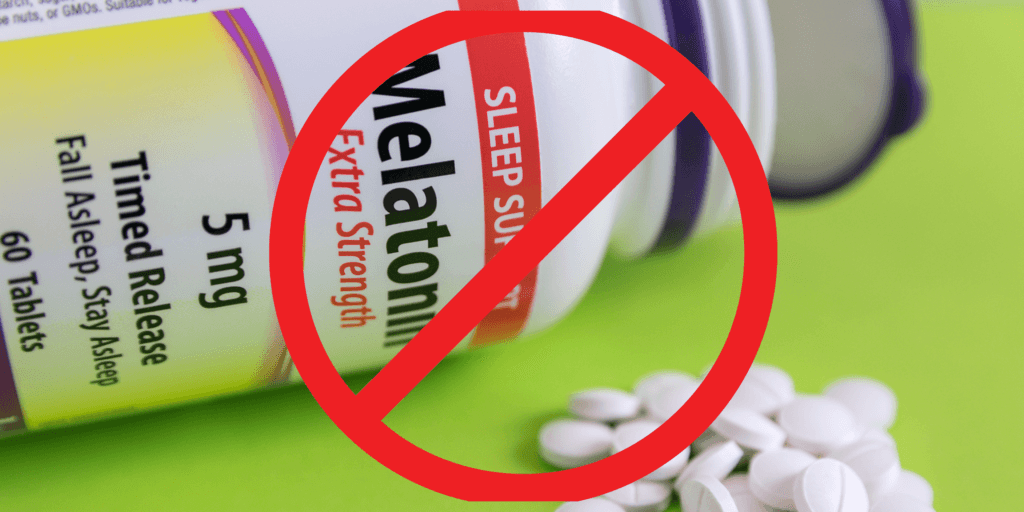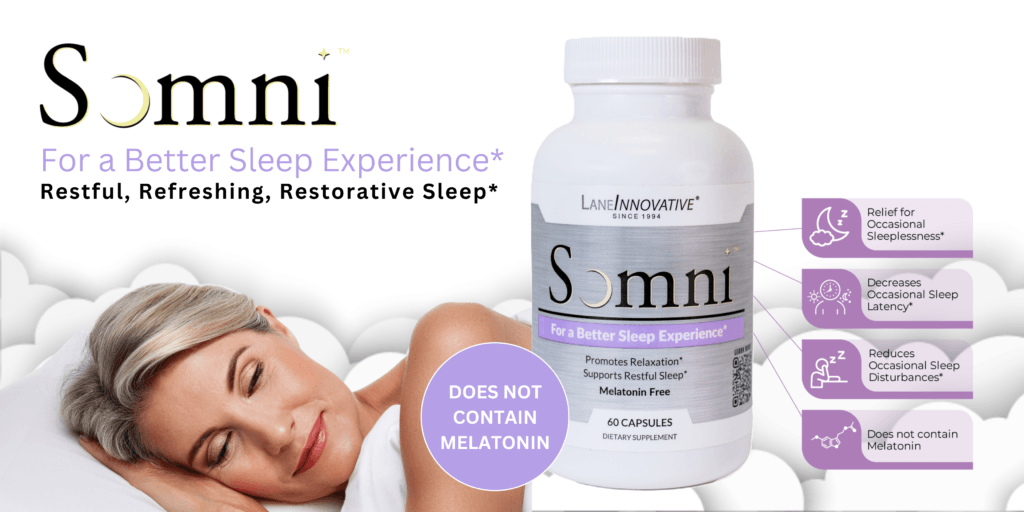Sleep
Taking Melatonin May Not be Worth the Risk When Looking for Better Sleep
Many people turn to melatonin when they struggle with sleep, thinking it’s the quick fix to a better night’s rest. But is melatonin really the answer, or is it more of a temporary band-aid that doesn’t address the root cause of poor sleep? While melatonin is often recommended as a natural sleep aid, its long-term effectiveness and safety are questionable. Before you reach for that bottle, let’s explore why melatonin might not be the best solution for improving your sleep and how a healthier lifestyle and natural supplements can be a better alternative.

The Melatonin Myth: Not the Sleep Solution It’s Cracked Up to Be
Melatonin is a hormone that your body naturally produces in response to darkness, signaling to your brain that it’s time to wind down and prepare for sleep. It’s widely available over the counter as a supplement, and many believe it’s a quick, safe way to improve sleep quality. However, taking melatonin may not be as effective as people think, and in some cases, it could even lead to unwanted side effects.
One of the main issues with relying on melatonin is that it doesn’t address the underlying causes of poor sleep. It might help you fall asleep faster, but it doesn’t promote healthy, restorative sleep in the long run. If your sleep problems stem from lifestyle factors, stress, or poor sleep hygiene, melatonin is unlikely to provide lasting solutions. Additionally, regular use of melatonin can lead to dependence, where your body may begin to rely on the supplement rather than its own natural sleep cycles.
The Risks of Taking Melatonin Long-Term
While melatonin is generally considered safe for short-term use, there are concerns when it comes to long-term use. For instance, taking melatonin supplements over extended periods can interfere with your body’s natural production of the hormone. This could lead to a reduced ability to regulate sleep on your own, potentially making it harder to sleep without the supplement in the future.
Moreover, melatonin can have side effects such as dizziness, daytime drowsiness, headaches, and even mood changes. These side effects can be bothersome, especially if they affect your ability to function during the day. Here are some more favorable supplement options for restful and restorative sleep.*
1. Magnesium Bisglycinate: A Sleep-Friendly Supplement
Instead of turning to melatonin, consider magnesium bisglycinate. Magnesium is a natural mineral that plays a critical role in sleep, muscle relaxation, and stress reduction. Magnesium bisglycinate is a highly absorbable form of magnesium that can help improve the quality of your sleep without the side effects that melatonin sometimes causes. It helps calm the nervous system and support muscle function, allowing you to relax and fall asleep more easily. It’s an ideal supplement for those looking to enhance sleep quality without relying on melatonin.*
2. Herbal Supplements: Passionflower, Chamomile, and Ashwagandha
Herbal supplements like passionflower, chamomile, and ashwagandha are known for their calming and relaxing properties. Passionflower and chamomile are traditionally used to promote relaxation and improve sleep quality by reducing anxiousness and soothing the nervous system. Ashwagandha, an adaptogenic herb, is particularly useful for managing stress and helping the body return to a balanced state.
These natural alternatives can help you achieve deeper, more restful sleep, allowing you to wake up feeling refreshed without the reliance on melatonin supplements.*
3. L-Theanine and 5-HTP for Stress and Sleep Support
L-theanine, an amino acid found in green tea, is known for its ability to promote relaxation and reduce stress. It can help ease anxiousness and quiet the mind, making it easier to wind down before bed. Combined with 5-HTP, which helps balance serotonin levels, these supplements can support better mood regulation and improve your ability to fall asleep naturally. They also work in harmony to enhance your overall well-being, allowing for more restful and rejuvenating sleep.*
Improve Sleep Hygiene and Establish a Routine
In addition to supplements, improving your sleep hygiene is one of the most effective ways to promote better sleep. This includes setting a consistent bedtime and wake-up time, reducing screen time an hour before bed, and creating a calm and relaxing environment in your bedroom. Make sure your room is dark, quiet, and cool—optimal conditions for sleep.
A bedtime routine that includes calming activities, such as reading, meditating, or taking a warm bath, can help signal to your body that it’s time to wind down. This helps regulate your circadian rhythm, making it easier to fall asleep and stay asleep naturally.
Overview
Melatonin may seem like a quick fix to your sleep problems, but it’s not always the best long-term solution. Overreliance on melatonin can lead to dependence, disrupt your body’s natural sleep-wake cycle, and cause unwanted side effects. Instead of relying on melatonin supplements, focus on improving your sleep quality through natural alternatives such as magnesium bisglycinate, herbal remedies like passionflower and chamomile, and stress-relieving supplements like L-theanine and 5-HTP.*
Sources:
Like? Share with Your Friends!

